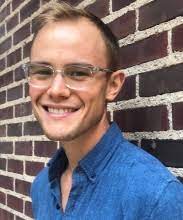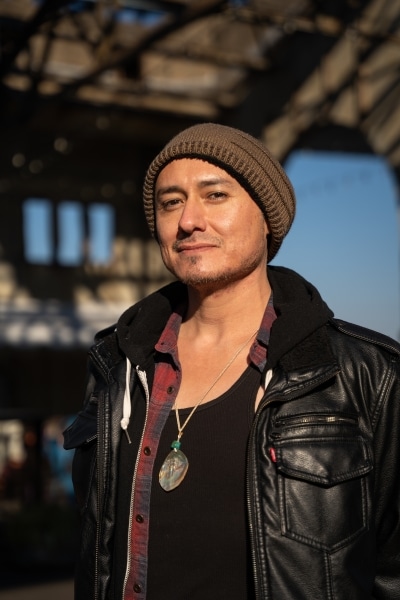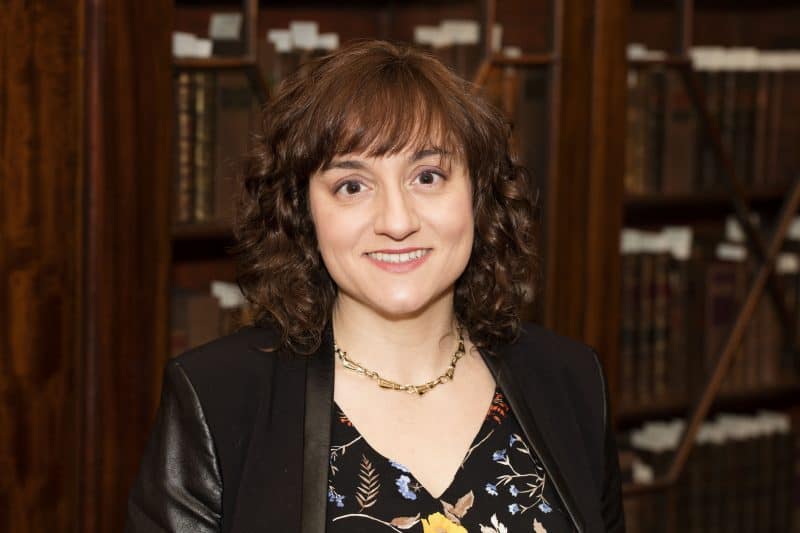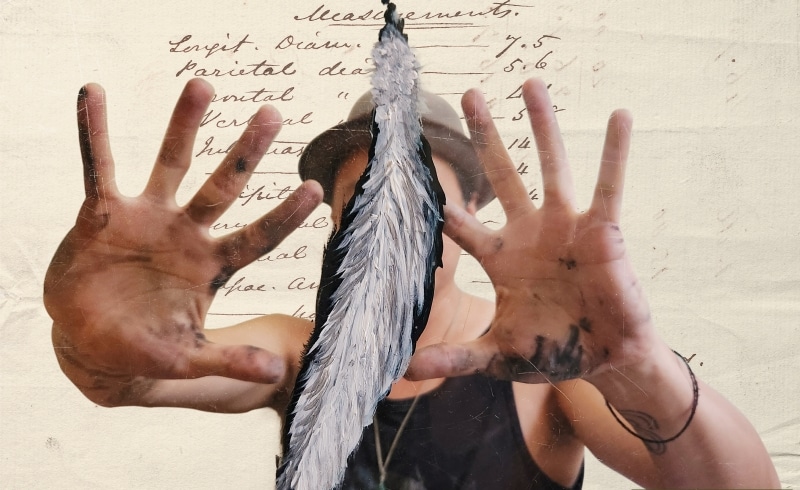Crania Americana and the Archive of Scientific Racism / Project Obtuse
In Project Obtuse, Jicarilla Apache artist Zachariah Julian uses color, sound, and movement to confront a dark chapter in the history of indigenous peoples in America. Julian examines the work of Samuel George Morton, whose papers reside, in part, at the Library Company. Morton is known today as among the most influential architects of scientific racism in the United States, both for his publications – most notably Crania Americana (1839) – and for his collection of nearly one thousand human skulls from across the world, amassed and measured during his lifetime to supply the “data” for these works. Scholar and former Library Company Fellow Paul Wolff Mitchell conducted a thorough study of the Morton Papers across several repositories. For Project Obtuse, Mitchell works with Julian to explore how Morton’s thinking developed and how his theories still impact us today. Through composition and performance, Julian will shift our gaze away from the chapter written by Morton and his colleagues and toward a thriving present and future that Indigenous Americans write for themselves.
Project Obtuse will include an exhibition, Crania Americana and the Archive of Scientific Racism, curated by Paul Wolff Mitchell and on display from mid-August through October. On September 17, the Library Company will host an exhibition viewing and reception where guests will have an opportunity to meet Mitchell and Julian. The following evening, Julian’s live performance will debut at the Asian Arts Initiative, and will immediately be followed by a panel discussion with Julian and Mitchell, led by Library Company Curator of Printed Books Rachel D’Agostino.
Project Partners

Paul Wolff Mitchell is an anthropologist and historian working on the histories and afterlives of scientific racism in museums, the anthropological collection of human remains, and theories of racial difference and human origins in the 18th and 19th centuries. He is a postdoctoral scholar at the University of Amsterdam with a project titled “Pressing Matter: Ownership, Value, and the Question of Colonial Heritage in Museums,” funded by the Dutch Research Council (NWO).
Paul has held fellowships from the Consortium for the History of Science, Technology, and Medicine; the McNeil Center for Early American Studies; the Library Company of Philadelphia; the Fulbright U.S. Program; the German Academic Exchange Service; and the Wenner-Gren Foundation. He has also been a research fellow with the Penn and Slavery Project and the Penn Program on Race, Science, and Society. His research has been covered in Discover, Forbes, The Guardian, and the New York Times.

Zachariah Julian serves as the Digital Media and Artistic Producer for We are the Seeds, a Philadelphia-based organization producing cultural events, programs, and workshops that celebrate and support Indigenous arts and artists throughout North America. He curates programs that are diverse, balanced, interesting, and entertaining. Zachariah composes music for From Here, With a View and other Seeds programs. Additionally, Zachariah edits daily content to upload to We Are the Seeds social media and archives, is a podcast producer and host. A musician and performer, he is knowledgeable in production and stage management. He has lived on the Apache Nation for 19 years and has been playing piano for over 20 years. Zachariah started composing when he was 16 and attended University of New Mexico majoring in Music Theory and Composition. He has just released a record titled Oblique.
Liaison

Rachel D’Agostino joined the Library Company in 2000. She is the Curator of Printed Books, previously having worked as Reference Librarian, and in the Cataloging and Administration departments. She has worked most extensively with the Library Company’s collections of printing for the blind, historical ephemera, institutional and popular medicine, and early American imprints. In 2013, she co-curated the Library Company’s exhibition Remnants of Everyday Life: Historical Ephemera in the Workplace, Street, and Home. She followed this in 2016 with Common Touch: The Art of the Senses in the History of the Blind, and in 2022 with Hearing Voices: Memoirs from the Margins of Mental Health. Rachel has taught numerous classes on book history and book arts, and served as Senior Lecturer at the University of the Arts until 2022. In addition to an MLS from Clarion University, Rachel holds a Master of Theological Studies degree from Harvard Divinity School and a B.A. in Religion from Temple University.




